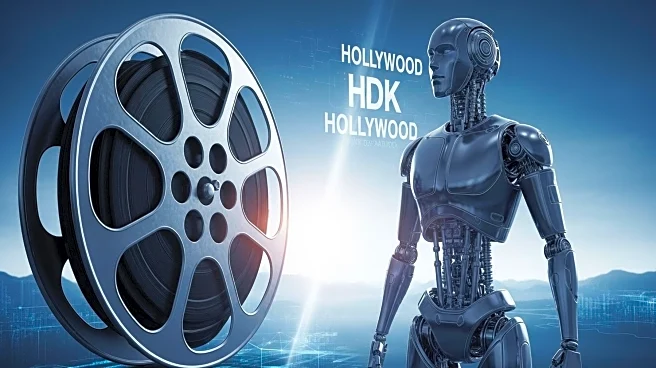What's Happening?
The release of OpenAI's Sora 2 video tool has intensified the ongoing battle between Hollywood and AI developers over copyright and consent. Sora 2 allows users to upload videos of real people into AI-generated environments, raising concerns about the use of actors' likenesses without consent. Hollywood studios, including Warner Bros., Disney, and Universal, have sued AI firms like MiniMax for copyright infringement. The Motion Picture Association and talent agencies have demanded OpenAI take action to address these issues, emphasizing the importance of established copyright laws. OpenAI has responded by engaging with studios and offering more control to rights holders.
Why It's Important?
This clash highlights the growing tension between technological innovation and intellectual property rights in the entertainment industry. The outcome of this legal battle could set important precedents for how AI tools are used in creative fields, impacting actors, studios, and AI developers. If Hollywood succeeds in enforcing stricter copyright controls, it could limit the capabilities of AI tools like Sora 2, affecting their adoption and development. Conversely, a resolution that favors AI developers might encourage further integration of AI in entertainment, potentially transforming content creation and distribution.
What's Next?
The legal proceedings between Hollywood studios and AI firms are expected to continue, with potential implications for future AI development and usage in the entertainment industry. OpenAI may need to negotiate licensing agreements with rights holders to avoid further litigation. The industry will be watching closely to see how these negotiations unfold and whether they lead to new standards for AI-generated content. Additionally, the response from talent agencies and unions could influence public opinion and regulatory approaches to AI technology.
Beyond the Headlines
The ethical implications of using AI to replicate human likenesses without consent raise questions about privacy and the commodification of personal identity. This debate may prompt broader discussions about the role of AI in society and the need for updated legal frameworks to address emerging technologies. The cultural impact of AI-generated content could also influence how audiences perceive authenticity and creativity in entertainment.










